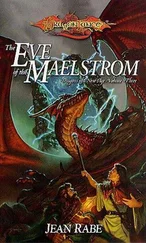There was an air of resigned efficiency about their actions.
Until Vogel dropped the case.
It was not an abrupt drop. Rather did he let it slither out of his hands, so that one corner hit the floor without any considerable noise. The other corner fell on the stiff toe-cap of his left boot.
But Vogel gave out a gasping moan. He lifted his left foot and held it between his hands. Face contorted, he hopped round the floor.
The guard looked at him without sympathy.
“Fool! Pick it up and get on with your work.”
But Vogel did not do so. He leaned against the wall directly behind where Keith was kneeling and continued to moan softly.
“Be quiet! You’re not hurt!”
Vogel continued to ignore the guard. He had the appearance of a man battling with a severe injury.
The guard hesitated. For a moment it seemed as if he was going to put his head into the short corridor and call for one of the others. But instead he decided to investigate himself. Holding his pistol at waist level he took a pace towards Vogel.
“Let me see that foot.”
He was glaring down at the allegedly damaged limb.
Vogel detached a hand from it to make a shaking gesture.
“I’ve—I’ve broken a bone… I’m sure I’ve broken a bone. That box… it fell across my ankle.”
By now the guard was half convinced.
“Then get back to your bunk. You have one consolation—it won’t hurt you for long!”
He started for the door.
He intended to move backwards—so as to keep Vogel and Keith in sight. But before a man can progress in that fashion he has to be certain that his path is clear. Even as he took the first short step the guard felt compelled to glance quickly round.
It was precisely the moment for which Vogel had been waiting.
The Dutchman stopped nursing his foot. Suddenly he kicked with it—a vicious kick. The boot slapped into the crotch between the guard’s legs.
A violent blow in that area has an unusual temporary effect. It induces complete temporary paralysis of the entire body, including the vocal chords. But there is no immediate loss of consciousness. The recipient is aware of each figment of apalling agony without being able to give so much as a low moan.
For perhaps a couple of seconds the guard stood completely still, absolutely rigid. His eye-balls had rolled upward so that only the whites and the lower rim of each cornea showed. There was a barely detectable twitching of his cheeks.
This condition was due to last for less than half a minute. Then life would return to his motor nerves. He would let out a piercing scream—if he had the opportunity. He was not given the opportunity.
Vogel took hold of the limp gun hand. He inserted a finger behind the trigger before removing the weapon from the man’s grip. By this means he prevented any possibility of it being accidentally fired.
He glanced at the gun belt. It was a military type, with an ammunition pouch at the right hand side. But, as they had foreseen, there would not be time to remove this. Already the guard was producing a series of faint grunts. Any one of them might be heard by the others, less than five yards away.
Keith whispered: “Hurry! What are you waiting for?”
But the phlegmatic Vogel took his own time. He gripped the guard round the shoulders and waist. He half lifted, half pushed him backwards.
Like all the others, the guard was powerfully built and heavy. Even Vogel’s considerable strength would not have been enough to prevent him hitting the floor with a loud bump, if Keith’s kneeling body had not been in the way.
As it was, he fell silently across Keith’s back.
Keith squirmed free of the burden. Then, with the guard stretched near the edge of the water tank, Vogel carefully reversed the Luger, so that he was holding the barrel. He took careful aim, then tapped the man’s forehead with the heavy butt. It was not a hard blow—a hard blow might have been noisy. But it was sufficient to stop the grunting by producing complete unconsciousness.
Both Keith and Vogel were sweating hard. But they worked as if doing a drill.
Vogel pocketed two clips of spare ammunition.
Keith took up the pitchers, filled them to the brim. Then he concealed them behind the oil stove.
They froze still as they heard a cough. It came from the bunk room. Then a mumble of gutteral voices. The guards were talking. Maybe they were becoming impatient.
Now the worst moment of all.
For a moment they stood on either side of the prostrate body, looking at each other. Keith had to fight against a sickening revulsion. But they gained strength from each other’s presence.
They bent down. Slowly they dragged the guard so that his head hung over the water tank. Then they pushed.
The senseless man slid face first into the deep, dark water. He did so slowly, and there was scarcely a splash.
As the water closed over him, a circle of air bubbles rose and plopped on the surface. Then there was nothing —nothing to suggest that a man was dying nine feet below.
Keith moved swiftly to a shelf. His moment of revulsion had passed. He felt a great exhilaration as he took down two large hemp bags of salt. These, too, were lowered gently into the tank. Then, very carefully, they replaced the flagstone.
They braced themselves. Vogel patted his tunic pocket to assure himself that the Luger and ammunition clips were there. Keith whispered: “Remember—we’re puzzled. We’re annoyed…”
Vogel nodded.
Keith leading, they moved into the short corridor. To their left they saw the open door of the bunk room. They saw part of the back of one of the guards. And beyond him the legionnaires, who were standing in small groups, or sitting on the edges of their beds. D’Aran was nearest the door. He looked straight at Keith. Keith nodded.
Deliberately, D’Aran called: “Why are you standing there? Tiens , don’t we get any coffee?”
“No water,” Keith called back, and he was surprised by the calmness of his voice. “We can’t get it out of the tank because those damned pitchers have disappeared.”
A couple of guards appeared in the doorway. Their pistols were held ominously ready as they surveyed Keith and Vogel.
One of them rapped: “Where’s Sarle?”
Sarle, it seemed, was the man in the tank.
Keith shrugged.
“He went to look for the pitchers.”
An expression of baffled wonder crossed the guards’ faces. It was quickly replaced by one of acute suspicion.
“Move back three paces and stand against the wall!”
Keith and Vogel obeyed the order. The two guards advanced to the cook house. One kept his pistol aimed at them while the other looked inside. He emerged after a quick glance.
“Not here,” he said. Then added: “The fool! Gallast will have his skin for this—leaving two prisoners!”
They exchanged oaths. Then suspicion reappeared to take the place of indignation. “Where are the pitchers?” Keith made a helpless gesture.
“I don’t know. Perhaps Sarle will know. He ought to have found them by now.”
“Did he say where he was going to look?”
“He said something about seeing if Gallast…”
“ Colonel Gallast!”
“…if Colonel Gallast had taken them. He thought perhaps the professor had been ill in the night.”
“And drink eight or nine gallons of water!”
“They wouldn’t be full, but there would be a few drops in each.”
Keith realised that he had made a mistake in introducing the reference to Gallast. It would have been more convincing if he had stuck to the original plan, which was to plead absolute ignorance.
But Vogel came to his aid. Vogel said vehemently: “Must we spend our time talking about what you swine may have done? We want those jugs! We want them now! And we want them because we are thirsty! If you can’t find them we’ll look ourselves!”
Читать дальше












